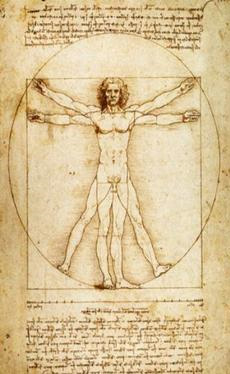“What drew me to the practice of medicine was the desire to touch hearts, to hold hands, to offer comfort amid suffering, to enable recovery when possible, and to alleviate loneliness and despair when cure wasn’t possible.”
– Dr. Lissa Rankin, MD
I heard Dr. Lissa Rankin, MD speak in July 2015 at the World Domination Summit here in Portland. She told an inspiring story about finding her calling as a healer. Twelve years of medical education landed her in a conventional OB/GYN medical practice for eight years. When she realized that she couldn’t practice the kind of medicine that she’d envisioned as a child, she said good-bye to 40 patients per day and 72-hour call shifts and entered the world of integrative medicine.
 I’d never heard of that term, so I did a bit of research to learn more about it. Integrative medicine establishes a close working relationship between the patient and practitioner for purposes of treating the whole person – mind, body, spirit, and lifestyle. It pairs conventional medicine with complementary treatments to the extent that the latter is backed by science. It includes programs to help patients establish healthy behaviors, such as smart eating habits, regular exercise, restful sleep, and stress-relieving activities. It aims to address conditions with the least invasive treatment while setting strategies in motion to prevent illness and support optimal health.
I’d never heard of that term, so I did a bit of research to learn more about it. Integrative medicine establishes a close working relationship between the patient and practitioner for purposes of treating the whole person – mind, body, spirit, and lifestyle. It pairs conventional medicine with complementary treatments to the extent that the latter is backed by science. It includes programs to help patients establish healthy behaviors, such as smart eating habits, regular exercise, restful sleep, and stress-relieving activities. It aims to address conditions with the least invasive treatment while setting strategies in motion to prevent illness and support optimal health.
At first blush, this field appears to address all of the issues raised in my prior post regarding conventional medicine. It suggests a proactive approach to wellness with openness to alternative medicine as well as plain old self-care. But I wondered about the scientific basis for this form of treatment. For that, I turned to Dr. Rankin’s New York Times bestselling book, Mind Over Medicine.
Dr. Rankin reminds readers that the prevailing standard for medical research has been double-blind studies in which one set of test subjects receives the designated treatment and another set receives a placebo. If those who receive the treatment outperform those who don’t, the treatment is deemed effective. Yet when a patient receives a placebo and believes it will work, that person’s brain scan will reveal increased activity in the pain-controlling regions and reduced activity in areas that receive pain signals. So who’s to say that the treatment wasn’t effective? The truth of the matter is: The body has an amazing capacity for self-care!
So what’s going on here scientifically?
First, a relatively new field called epigenetics has revealed that our genetic code is not as determinative as was once thought. Most of our genomes are far more responsive to the cell’s environment than they are to their underlying genetic code. If set in a stress-free context with healthy nutrients, predispositions for disease may never manifest in adverse health conditions. By contrast, if subjected to steady supply of unhealthy substances and/or chronic stress, bad things start to happen.
Second, our belief systems shape the cell’s environment. Positive belief and nurturing can stimulate the brain to release oxytocin, dopamine, endorphins, and other positive chemicals into the bloodstream. These substances create the good cellular environment that wards off disease and/or encourages healing. By contrast, a stress response inhibits self-repair. As such, Dr. Rankin notes that “there’s something powerful that gets set in motion when we believe we will get better and our physicians share our optimism.” In fact, when “sick cells” are removed from a bad environment and placed in a good one, they recover.
Third, complementary and alternate medicine has been shown to trigger relaxation and reduce stress in the body. The relaxation response induces positive hormonal changes and returns the body to its natural state of homeostasis, which can induce self-repair.
Finally, studies show that positive psychological energy (joy, happiness, optimism, hopefulness) combined with life satisfaction, companionship, and a sense of humor result in lower mortality rates and extended longevity. Happiness and health are inextricably linked.
So if you’re inclined to see a practitioner of integrative medicine, be prepared for an extensive intake interview that covers all aspects of your life. Such practitioners consider optimal health to encompass: healthy relationships, meaningful use of time, a fully expressed creative life, a healthy spiritual life, a healthy financial life, a healthy mental and emotional life, a healthy sex life, a healthy environment, and a healthy lifestyle that supports the body.
What’s Dr. Rankin’s prescription for good health?
- Believe you can heal yourself.
- Find healthcare providers who believe in you.
- Listen to your body and pay attention to your intuition.
- Diagnose the root cause of your illness. If repetitive stress is the trigger, ask what lies behind it.
- Write a prescription (a.k.a. lifestyle plan) for yourself.
- Surrender attachment to outcomes.